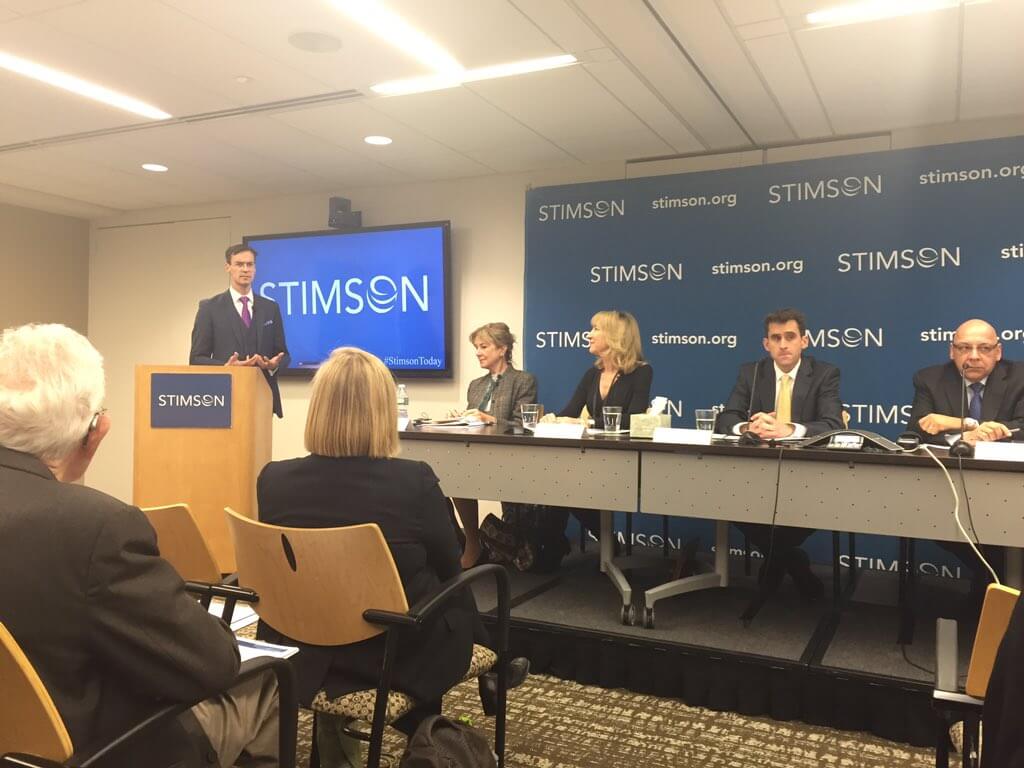WASHINGTON — Nuclear power plants need to improve security systems to safeguard against non-traditional terrorist attacks, but that’s challenging for developing countries, experts said Thursday.
Nuclear power has grown in popularity in many regions as a constant zero-carbon energy source, said Michael Wautlet, director of nuclear energy policy for the National Security Council. It provides a way to reduce carbon emissions and comply with standards set by the Paris climate talks.
However, a report released Thursday by the Stimson Center, a Washington think tank, said many nations do not have the resources to adequately protect their nuclear facilities from insider or cybersecurity attacks.
“In particular countries in close proximity to terrorist groups with vulnerable or unstable economies, the potential for incidents is much higher,” said Debra Decker, the report’s co-author and Stimson Center senior adviser.
West African nations like Nigeria are battling terrorist groups including Boko Haram. In the Middle East, territory in Syria has been taken by the Islamic State. Both countries are considering nuclear power programs, according to the World Nuclear Association.
Attacking a nuclear power plant can disrupt power grids or even cause a nuclear meltdown. Kathryn Rauhut, co-author of the Stimson report, said the Fukushima power plant in Japan — destroyed by a meltdown caused by a tsunami — could also have been vulnerable to cyberterrorism.
“Rather than the tsunami taking out backup power supply, you could just have that engineered through a cyberattack,” she said. “We hope that nobody would ever use planes or weapons of mass destruction again, but you don’t need to do that, you can wreak the same amount of havoc through cyber intrusions.”
Unlike American nuclear power plants, which are strictly monitored by the Nuclear Regulatory Commission, international plants do not have any binding safety standards, Decker said.
The NRC, overseeing 99 nuclear plants in the United States, is the gold standard for regulatory practices, said Tom Kaufman, director of media relations at the Nuclear Energy Institute.
All digital nuclear power plants in the United States have computer safety systems that are isolated from the Internet, and reactors that shut down safely if the system is breached, according to the institute. The plants are also required to participate in biannual training drills that simulate attacks.
“There are layers upon layers of safety systems, procedures and plans to maintain a high level of safety,” Kaufman said. “We’re always prepared. You have to assume there are credible threats, and we never let our guard down.”
But developing countries lack the funds to invest in a complex defense strategy. To solve this problem, Decker and Rauhut suggest providing incentives for investment in safety systems.
“It’s similar to installing a burglar alarm and getting a discount on your insurance,” Rauhut said.
Despite a well-organized and multi-layer defense system, Rauhut said it is difficult to ensure 100 percent protection.
“You can’t prevent against terrorism,” she said. “Even if you’re Fort Knox, you’re not impervious to terrorism.”


